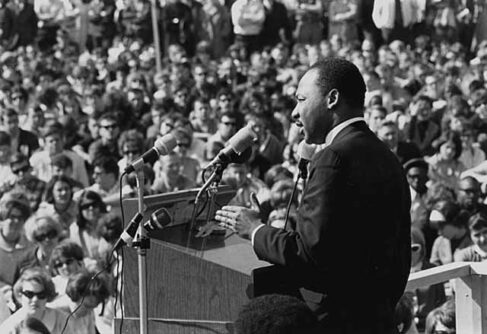LIVESTRONG has succeeded in becoming one of the most recognized charities in America, thanks to its ubiquitous yellow wristbands. According to its website, it has raised nearly a half-billion dollars and supported more than 550 organizations; this week, I’ve read online tributes by people who have benefited from its programs.
Is this good work in jeopardy because of Lance Armstrong’s misdeeds -- and should it be? For LIVESTRONG’s past supporters, the dilemma of whether or not to continue their support for LIVESTRONG showcases how philanthropy is an ethical pursuit -- and, in this case, requires bioethical considerations.
Much depends on past supporters’ judgment about what, exactly, Armstrong did -- if anything -- that was truly unethical. Americans have certainly faced these questions before -- most recently in water-cooler conversations this month about whether Barry Bonds should have been admitted into the Hall of Fame in spite of alleged steroid use when his name appeared on the ballot for the first time. The reasons doping might be wrong are considered in Leon Kass and Eric Cohen’s wonderful essay “For the Love of the Game” that followed the Mitchell Report on doping in baseball.
The range of objections to doping considered by Kass and Cohen are reflected in the reactions range of reactions among LIVESTRONG supporters to the revelation of Armstrong’s cheating.
Some focus on the cheating itself. By using drugs and blood doping, these critics say, Armstrong has no legitimate claim to any victory and put pressure on others to use drugs. Further, as Armstrong conceded to Oprah, it is possible that the steroids themselves led to the development of his cancer -- that if he hadn’t been doping, there’d be no “Lance Armstrong the survivor” story to tell at all.
LIVESTRONG supporters who think that the cheating itself is wrong are the ones who are most angry:
“The charity was established and publicized and got their funds based on a fraud,” Michael Birdsong, a longtime Livestrong supporter, told CNN.
Birdsong got involved with the organization after his wife, who is an avid cyclist, was diagnosed with breast cancer. Together, the couple donated $50,000, helped raise another $150,000 and defended Armstrong’s reputation up until a massive U.S. Anti-Doping Agency report detailed allegations of his using performance-enhancing drugs and coercing his teammates to do the same.
“The whole thing is founded on a lie. The guy cheated, and he forced other people to cheat,” Birdsong told CNN. “I would like my money back. We donated under false pretenses.”
Others focus not on the cheating itself but on the cover-up, arguing that it was Armstrong’s deception is the real crime. This seems to be the position LIVESTRONG itself took in its public statement:
We at the LIVESTRONG Foundation are disappointed by the news that Lance Armstrong misled people during and after his cycling career, including us. Earlier this week, Lance apologized to our staff and we accepted his apology in order to move on and chart a strong, independent course. We look forward to devoting our full energy to our mission of helping people not only fight and survive cancer, but also thrive in life after cancer.
Yet others will make the position that seems to be implied by Lance Armstrong himself -- that when everyone is cheating, it’s not wrong to do so as well . . . and that Armstrong should still be honored as the best cyclist in a cohort where doping was essentially universal.
An op-ed writer from a newspaper in LIVESTRONG’s home state of Texas seemed to take this most forgiving position because she accepts cheating as a normal and can separate Lance Armstrong the man from the mission of LIVESTRONG:
I’m still wearing my Livestrong bracelet. . . .
Isn’t American society replete with examples of elaborate swindles -- ambition and greed on steroids, so to speak?
But I don’t feel personally cheated. Lance Armstrong might be a fraudulent Tour de France winner, and he owes plenty of people money and, more important, true contrition for damaging their lives.
But he did beat cancer. I still believe that part.
And I still detest cancer.
So I'll keep wearing my yellow bracelet, until science gives me a reason to not have to any more.
The fact that any one of these positions is plausible -- and that they imply anywhere from the very harsh to quite mild censorships of Armstrong -- is part of what makes it so hard to say how Lance Armstrong’s admission of cheating will shake out for the LIVESTRONG Foundation.
I don’t envy the job of its president and CEO, Doug Ulman, in guiding LIVESTRONG during this time. Although Lance Armstrong left the LIVESTRONG board last last year, the foundation is sticking with Lance Armstrong to a remarkable degree -- it continues to have “Lance’s Story” and “Our Founder” links up on the website, and it seems clear that Lance Armstrong’s triumph (at least to date) over his cancer will be the touchstone for LIVESTRONG programs.
LIVESTRONG’s fate ultimately depends on its supporters’ bioethical judgments -- because philanthropy is, in the end, a practice that engages our ethical judgments about what’s really worthwhile in the world.





